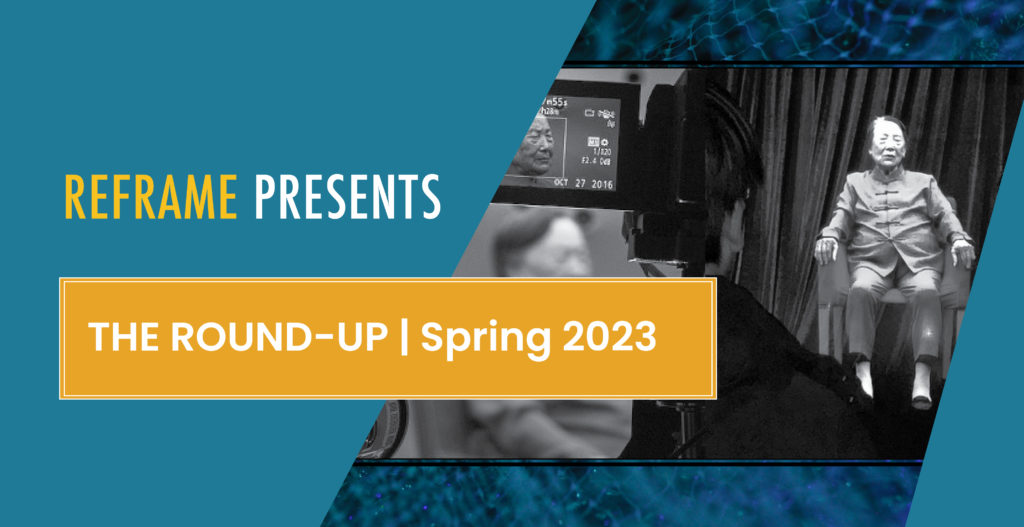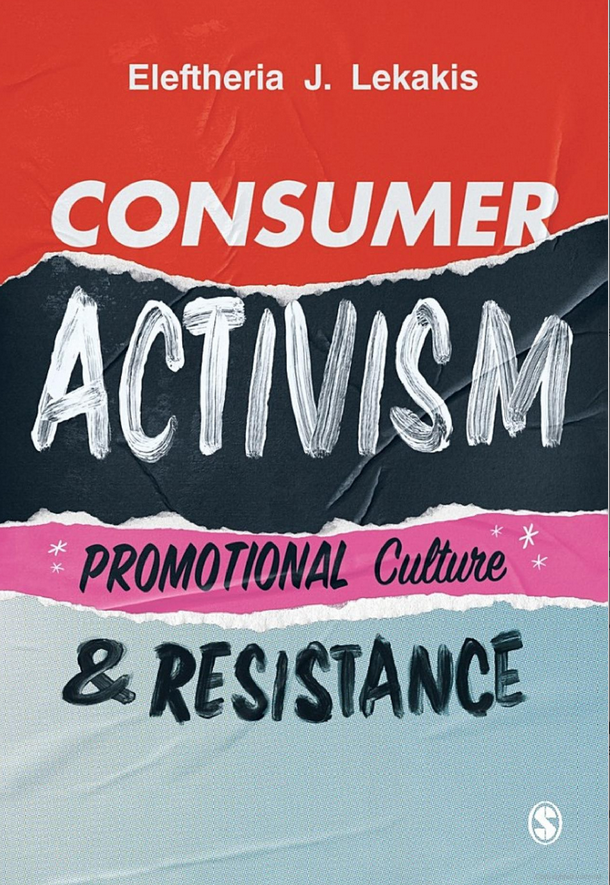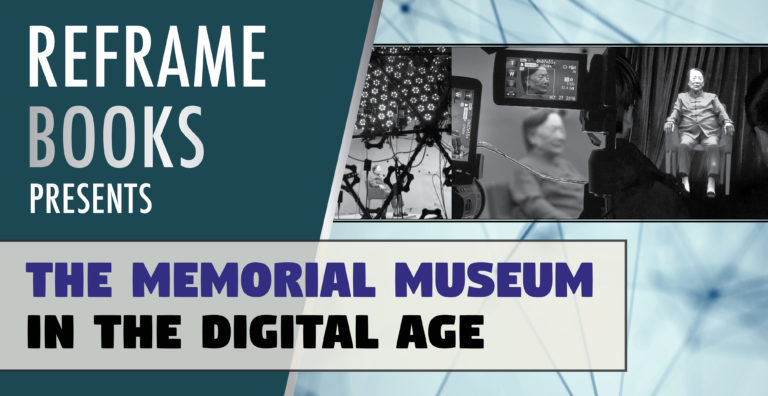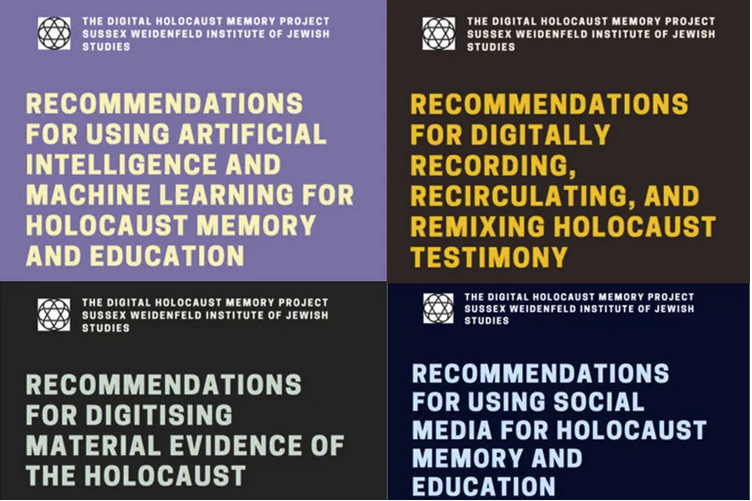
We’re excited to present the latest developments in REFRAME projects, publications and other open access scholarly items at the REFRAME digital publishing platform, hosted by the School of Media, Arts and Humanities, University of Sussex.
In addition to the items below, at REFRAME you will also find freely downloadable books on film and media studies and digital humanities; more than a dozen videoed talks by top international scholars and media practitioners; and lots of film and media studies research and commentary at our existing websites – see our publications and projects page for full details. Thanks so much to all the colleagues (at Sussex and far beyond) who contribute to REFRAME in order to bring all this material into the public domain.
NEW EBOOK
The Memorial Museum in the Digital Age
Editor: Victoria Grace Walden
ISBN: 978-1-7395820-0-5 (PDF). Falmer: REFRAME Books, 2022.
Download here: https://reframe.sussex.ac.uk/the-memorial-museum-in-the-digital-age/
We’re thrilled to have launched our new eBook, The Memorial Museum in the Digital Age in December 2022. The book is an edited collection containing 15 original chapters, by academics and practitioners and is the first comprehensive review of thinking and practice related to the effects and affects of the digital for memorial museums. Huge congratulations to editor Viki Walden on this exciting new edited collection, and special thanks to production designer Nadya Herrera Catalan.
The Memorial Museum in the Digital Age is the first comprehensive review of thinking and practice related to the effects and affects of the digital for memorial museums. These commemorative and educational spaces have traditionally contained object-heavy displays to stand-in for people, cultures and things that have been destroyed. What then happens when collected material evidence is presented to visitors/ users in digitalised forms – distanced from the material proximity offered at so-called ‘authentic sites’? Whilst memorial museums have often been celebrated for their commemorative and educative agendas, they are also political and tend to reiterate museological logics deeply embedded in problematic histories of arranging cultural objects and identities. Can digital technologies offer the potential to rearrange or resituate the memorial museum into activist spaces? Can going online disrupt the national memory politics that commonly characterise memorial museums, or does it enable more of the same? These are some of the questions that interest the contributors of this collection.
Whilst there is a growing number of publications interested in museums and the digital, the specificity of the memorial museum is understudied. Yet, it raises particular concerns relating to preservation, materiality, ethics, and absence that require careful consideration in relation to the digital. After a theoretical consideration of what the memorial museum is and could be in this ‘digital age’, this book offers a series of case studies written by curators, artists, and academics covering memorial museum examples in North America, South America, Africa, Europe, Asia, and Australia.
Download the free, OA book here: https://reframe.sussex.ac.uk/the-memorial-museum-in-the-digital-age/
NEW CONTENT AT THE DIGITAL HOLOCAUST MEMORY PROJECT
Recommendations reports
We’re pleased to share this publication of the first four recommendations reports for digital interventions in Holocaust memory and education. The reports were developed through interdisciplinary, co-creation workshops held in 2022, which involved more than 80 individuals from a wide range of academic disciplines, creative and tech professionals, and those working in Holocaust organisations. We encourage you to read, share, and participate in actioning these recommendations. You can access the reports on AI and Machine Learning, Social Media, Digitising Material Evidence, and Recording, Recirculating and Remixing Testimony here: https://reframe.sussex.ac.uk/digitalholocaustmemory/digital-holocaust-memory-and-education-recommendations/
NEW POST AT RE.FRAMING ACTIVISM
Consumer activism, promotional culture and resistance: An interview with Dr Eleftheria Lekakis

REFRAME co-managing editor Dr Tanya Kant interviews Re.Framing Activism editor Dr Eleftheria Lekakis on her new monograph: Consumer Activism, Promotional Culture and Resistance.
Dr Lekakis’s book takes as its premise that consumption and resistance are entwined. From buying fair-trade, to celebrity advocates for social causes, to subvertising and anti-consumerist grassroots movements, consumer activism is now a key part of our fight for social and environmental justice. Her monograph explores the complexities and dilemmas of using the marketplace as an arena for politics, going beyond simply buying or boycotting to critically explore how individuals, collectives, corporations and governments do politics with and through consumption. In this blog post Dr Lekakis answers some questions about the book and explores some of the key issues at the heart of her research. Read this and more Re.Framing Activism posts here: https://reframe.sussex.ac.uk/activistmedia
NEW CONTENT AT MEDIÁTICO
Ema In Havana: Reacting To Regga

New post: EMA IN HAVANA: REACTING TO REGGAETON by Dunja Fehimovic. Fehimovic reflects on the representation of and audience response to reggaeton in relation to Ema (Pablo Larraín 2019) and to Cuba, race, class and popular music.
Mediático features studies of Latin(o/a/x) American, Spanish & Portuguese film/media cultures. It is co-edited by Dolores Tierney & Catherine Grant. Read the blog here: https://reframe.sussex.ac.uk/mediatico/home-2/


